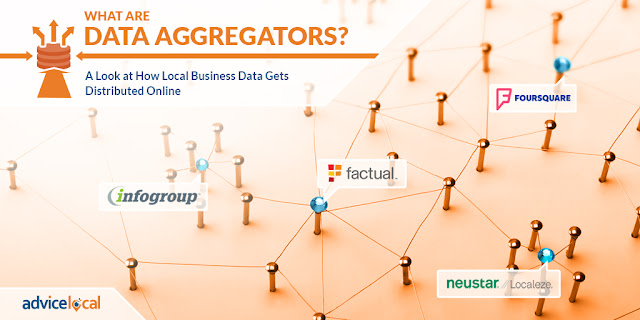Data Aggregators and Local Citations
In today's digital landscape, establishing a strong online presence is essential for businesses of all sizes. When it comes to local businesses, optimizing their visibility in search engine results is paramount. This is where data aggregators and local citations play a crucial role. Data aggregators act as intermediaries between businesses and online directories, while local citations contribute to a business's online reputation. In this blog post, we will explore the significance of data aggregators and local citations and how they can benefit businesses.Understanding Data Aggregators
Data aggregators are companies that collect and distribute business data to various online directories, search engines, review sites, and mapping platforms. They act as centralized hubs that streamline the process of updating business information across multiple platforms. Instead of manually submitting data to each directory individually, businesses can submit their information to data aggregators, which then distribute it to their network of partner sites.The Role of Data Aggregators
Consistency:
Data aggregators ensure that business information, such as name, address, phone number (NAP), and website, remains consistent across different directories. This consistency improves search engine optimization (SEO) efforts, as search engines prioritize accurate and consistent information.Time Efficiency:
By leveraging data aggregators, businesses save valuable time by avoiding the tedious task of manually updating their information on multiple directories. Instead, they can rely on data aggregators to disseminate changes efficiently.Wide Reach:
Data aggregators have partnerships with numerous online directories and platforms, ensuring that business information reaches a wide audience. This broad distribution increases visibility, potentially attracting more customers and driving traffic to the business.Key Data Aggregators
Some well-known data aggregators include:
Foursquare
Foursquare is a popular data aggregator and location-based social media platform that provides valuable business information and recommendations to users. It collects and distributes business data, including NAP details, across its network of partner sites and apps.
Foursquare's platform allows users to discover and review local businesses, check-in at locations, and share their experiences with friends. By leveraging Foursquare as a data aggregator, businesses can enhance their visibility, attract potential customers, and tap into the platform's extensive user base for increased exposure and engagement. Check how to claim / create your business listing in Foursquare?
Data Axle
Acxiom
Localeze/Neustar
Factual
Infogroup
Google My Business (GMB)
Local Citations: Building Online Authority
Local citations are references to a business's NAP information on other websites, directories, or platforms. These references contribute to a business's online authority and improve its visibility in local search results. Local citations can appear in various forms, such as business listings, customer reviews, mentions in news articles, or social media profiles.Benefits of Local Citations
Improved Local SEO
Local citations are a crucial factor in local search engine rankings. Search engines consider the number, accuracy, and quality of citations when determining a business's prominence in local search results.Trust and Credibility
Local citations, especially positive reviews and ratings, build trust and credibility among potential customers. When customers see consistent and positive information about a business across different platforms, they are more likely to trust and choose that business over competitors.Increased Online Visibility
Local citations provide additional online touchpoints for customers to discover a business. When a business is mentioned in various reputable directories and platforms, it gains more exposure and increases the likelihood of appearing in relevant search results.Local Partnerships
Building local citations often involves collaborating with local directories, organizations, or chambers of commerce. These partnerships can lead to valuable networking opportunities and increased community involvement.Data aggregators and local citations play a significant role in enhancing a business's online presence and visibility. Leveraging data aggregators ensures consistent and accurate business information across multiple platforms, saving time and improving SEO efforts. Meanwhile, local citations build online authority, credibility, and trust, ultimately attracting more customers. By understanding the importance of data aggregators and local citations, businesses can harness their power to achieve greater success in the competitive digital landscape.


Comments